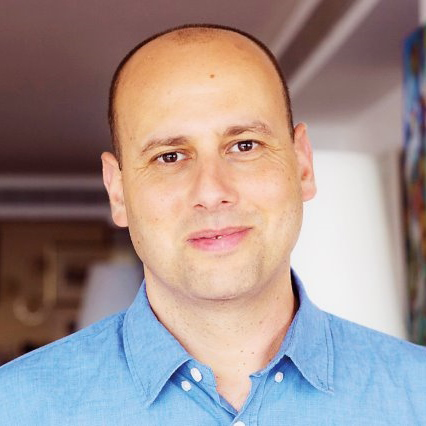
OpEds

Torn apart, but still waving the flag
On Sunday evening, I was having dinner with friends in Tel Aviv during my short business trip to Israel. Obviously we discussed the judicial overhaul because everywhere I went on my visit, the only issue people discussed was the situation, even those who usually couldn’t care less about politics.
It’s not “another” Israeli dispute, it’s a coming tsunami.
While eating, a breaking news update informed us about Prime Minister Benjamin Netanyahu firing our defence minister, Yoav Gallant, after he publicly shared his concerns, what he believes to be threats to Israel’s national security, and asked that the government slow the legislation process.

For the first time in my life, I felt I had to go, now, outside to shout. I had this bizarre, instantaneous feeling that our country was being torn apart.
Over the past few weeks, we have had tons of well-organised demonstrations, but my move and that of my friends and fellow Israelis was completely spontaneous and unplanned.
We walked through Tel Aviv streets, and thousands gathered from each corner. Like currents that fed a stream. With a blue and white flag or a sign people had hurriedly improvised. “You took me out of bed!” was the funniest of those I saw.
But there was authentic anger and fear in the air. That night, we literally cried for our beloved country. I had tears in my eyes, joining a river of people marching with no instructions to the Ayalon Highway. Tens of thousands.
Like me, probably for the first time in their life, they were violating a law, standing there in the middle of a road shouting, “If there’s no equality – we will block Ayalon! You messed with the wrong generation!” It rhymes in Hebrew.
Midnight arrived, and on the WhatsApp groups there were reports of protests at dozens and dozens of junctions across the country. There were pictures and updates of all my friends who took to the streets en masse.
In the south, my cousin was arrested by the police for blocking a junction near Sapir College in the Negev. From my hometown of Kfar Saba, I received a photo of friends – for most of them it was their first act against judicial reform, which they supported in principle.
They, too, couldn’t go to sleep that night without standing up against the destruction of Israel and creation of a dictatorship. These were historic moments. I wrote a message to my wife and kids in South Africa, “I went out to save our homeland, our future, our democracy,” and I really believed I did.
Our strong start-up nation and the good old Israeli kibbutz system, this melting pot, and the great Israel Defense Forces (IDF) narrative we keep telling ourselves isn’t relevant anymore. Internal cohesion in our country is our biggest challenge, not Iran or Hamas.
And you know it already, because during our shlichut to the Jewish community in South Africa, I wrote on the pages of the SA Jewish Report, and repeated it again and again in every conversation I held. No Jewish sovereignty has reached its 80th independence day, and this is purely due to a domestic (internal) collapse.
This crisis emerged recently in Israel through a unique coalition of interests of injustice: haredim – the ultra-Orthodox – who don’t want the legal system to intervene with their extra rights and budgets. They feel no obligation to Israeli society, such as the need to join the army or teach their kids maths or English. The second group is made up of some Messianic settlers who want legal approval for Jewish supremacy all over our promised land. The third tiny group, with many “hitchhikers”, is a bunch of true ideologues who support the illiberal model of Hungary and Poland.
Ah, and there’s another partner to this hostile coup: a criminal defendant who simply wants to control the judiciary and legal advisors, as well as satisfy his only potential coalition members, extremists. Bibi, who ideologically used to be the big protector and saviour of the judiciary. Now the opportunist has different calculations and strategies.
But the Israelis who filled the streets didn’t do it just because of the legal system or because they were against Bibi. Those in the streets were the high-tech taxpayers, active IDF reservists, doctors, lawyers, women, and LGBT+ (lesbian, gay, bisexual, transgender, intersex) people. They are “the serving elite” who still represent the majority of the society and feel like they’re losing control to others who sincerely threaten the open, democratic, free, pluralistic Israel they know and want.
A few years before it’s too late demography-wise, the clash we experience is an uprising of the liberal camp. It’s not “left” or “right” anymore on the political spectrum but democrats versus nationalists. That’s the reason the polls showed low backing from the public for the reform plan, although this coalition holds a solid majority in parliament.
This week, at the last minute, the legislation was frozen and a civil war postponed. Israeli President Isaac Herzog (holding a symbolic role only in Israel) begged again and again over the past three months to hold talks before steamrolling massive changes to the very foundations of Israel.
Herzog is now hosting the formal negotiations, but only after Israel has already paid an unnecessary price while Bibi insisted that he wouldn’t stop. The economy has been hurt. The trust and image in global markets and among our allies and enemies has been severely damaged. And the main cost: internal social rupture.
It’s not too late to redesign Israeli democracy and adjust it and keep it liberal, but include the growing portion of haredi, religious, and Arab populations. But when you want to set new “rules for the game”, it can’t be through “the winner takes it all”. We have to build a new consensus in order to change a system.
The clash started by introducing a “judicial reform”, but there’s no place for a limited compromise anymore. The only solution is via a larger package deal, maybe finalising the foundations we have of a Constitution. We should look at the idea of judicial reform, balancing relations between the different branches (executive, legislative, and judicial) of government in Israel, and a Bill of Rights. This way, each side will gain something.
We’ll find out fast if there’s goodwill in the negotiation room. Because if one side insists on taking advantage of its accidental majority in the Knesset in order to force us to become Hungary, Turkey or South African apartheid regimes, the masses will fight. Literally.
The vast majority of Israelis – many of them voted for this coalition – prefer the free, inclusive, diverse, and prosperous Israel. Can we protect it and turn this clash into an opportunity for a “constitutional moment”? Maybe. I still have hope, especially after the massive, creative, amazing civic awakening in the past few weeks. Unfortunately, I doubt if Netanyahu can rise above his “survival mode”. Let us pray Bibi won’t be a modern arrogant King Rehoboam who split our ancient Kingdom of Solomon into Israel and Judah.
We’re heading for our Pesach holiday and the national days of remembrance and independence. From slavery to freedom and the birth of a nation. From Holocaust to revival and shivat Zion (return to Israel).
This is the most sacred times for Israelis, to commemorate our sacrifices and celebrate our miraculous achievements. For the first time ever, Israelis are looking back at those days with suspicion and hostility to each other. But at least they still bring to each rival demonstration the same blue and white flag.
- Zvika (Biko) Arran is a publicist, social entrepreneur, lawyer, and advisor to philanthropists. He currently lives in Johannesburg with his wife and four sons.











Choni Davidowitz
March 31, 2023 at 3:34 pm
Torn apart? Aaron, If you were truly democratic I would submit you express your grievances at the ballot box, and cause chaos in the streets in the country you claim to love.